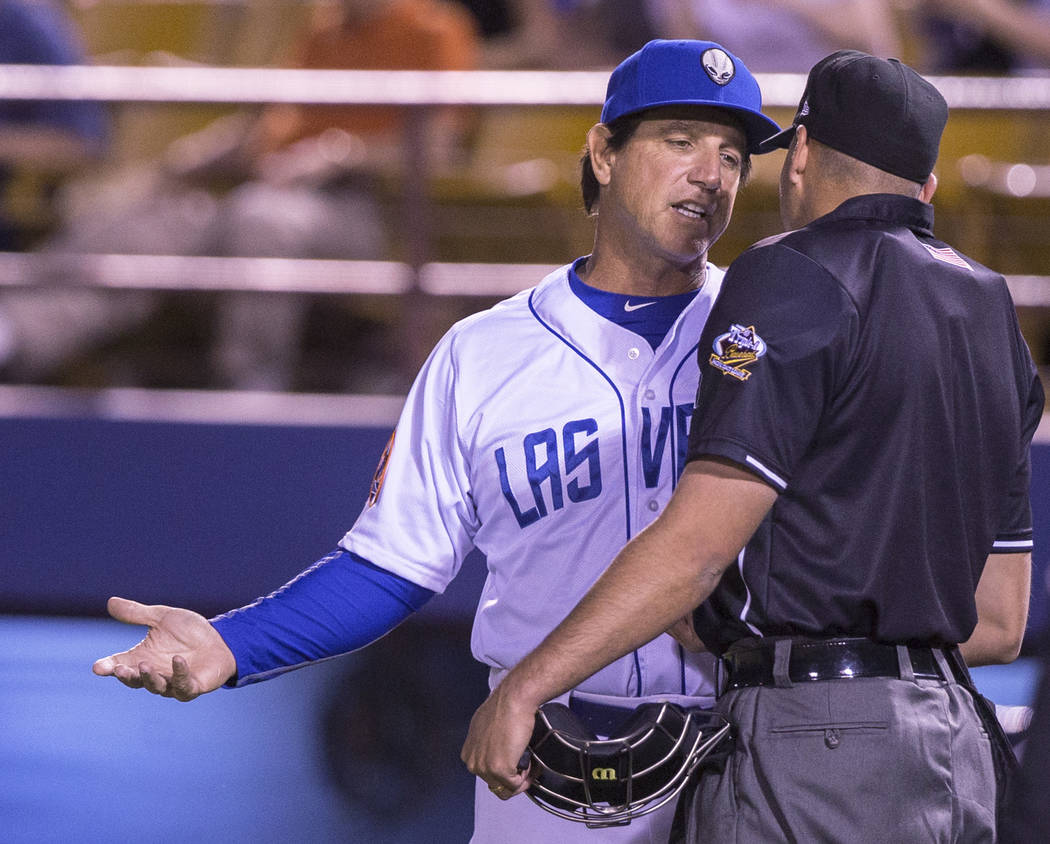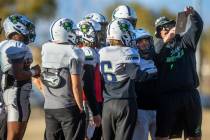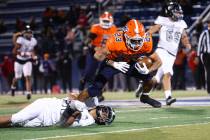New minor league extra inning rule catches 51s off guard









On Monday night in the West Texas town of El Paso, the 51s and Chihuahuas were tied 5-5 after nine innings, setting the stage for implementation of a new minor league baseball rule that puts a runner on second base to begin each extra inning.
The idea behind the experimental rule is to get ballgames over faster so teams won’t use up bullpens.
Lo and behold, the 51s’ automatic runner on second base (Patrick Biondi) got picked off faster than you could say Herb Washington.
This was not how the new rule was supposed to work.
“No, that’s something we’ve got to be aware of,” first-year manager Tony DeFrancesco said of the 51s’ 9-6 victory that required 11 innings. “We try to advance the runner any way we can, move him over with a bunt, and he (Biondi) got a little too aggressive.”
Baseball purists abhor the minor league extra-inning rule, and DeFrancesco agreed that it probably would never see the light of day in the major leagues.
But as a manager, he likes it.
“I’m a big fan of it, been doing this for a long time,” he said. “You kind of lose your bullpen (in an extra-inning game). You might go 14 or 15 innings, and then you don’t have enough pitching for the following couple of days.
“I think it’s good for the game; it speeds it up a little bit. I like the way they formatted it.”
Added Minor League Baseball president Pat O’Conner in a statement: “We believe these changes to extra innings will enhance the fans’ enjoyment of the game and will become something that fans will look forward to on nights where the game is tied late in the contest.”
Fans who haven’t left the ballpark after they cut off beer sales probably also will look forward to showing any runner picked off second base in extra innings absolutely no mercy as he dejectedly walks back to the dugout.
Knights tickets get hotter
Golden Knights fans hoping the aftermarket websites might provide relief for outrageous second-round playoff ticket prices had better ice the puck or send out additional forecheckers.
According to TicketIQ.com, the current average asking price on the secondary market for a Knights vs. Sharks ticket is $464, and $560 for games at T-Mobile Arena. During the first-round series against the Kings, fans paid an average of $484 on the secondary market for games at T-Mobile.
But there are “bargains” to be had on a more micro level.
Vivid Seats lists an average price of $279 for Game 1 Western Conference semifinals tickets at T-Mobile, up from $256 for Game 1 against the Kings; and $298 for Game 2, compared with $254 for the Game 2 first-round double overtime thriller against Los Angeles.
The Mighty Quinney
Jason Zucker, whose Minnesota Wild were knocked out of the Stanley Cup playoffs by another Winnipeg whiteout on Friday, is recognized as the first Las Vegan to play in the NHL. But he wasn’t born here; he was born in Newport Beach, California, before his family moved to Las Vegas when Zucker was 2 months old.
So if one wants to get technical, Gage Quinney still has the best chance of becoming the first Las Vegas native to play in the NHL.
Quinney was born in Las Vegas in 1995 when his father, Ken, still was lighting the red light for the Las Vegas Thunder of the International Hockey League. Gage Quinney scored 14 goals with 19 assists in 57 games for Wilkes-Barre/Scranton, the Pittsburgh Penguins’ American Hockey League affiliate, during the 2017-18 regular season.
Young Quinney did not score in WBS’ 3-2 overtime loss to the Charlotte Checkers in Game 1 of a first-round Calder Cup playoff series Friday.
Colorado State cashes in
Colorado State has raised $57.7 million in naming rights for its year-old on-campus football stadium, a deal that Yahoo’s Pat Forde said puts the Rams on a naming rights plane with Pacific-12 Conference schools such as Southern California ($69 million) and Washington ($41 million). It also positions the Rams for consideration the next time the Pac-12 expands.
It remains to be seen how much — if any — naming rights money from the new Raiders’ stadium will trickle down to UNLV.
I guarantee it won’t be $57.7 million.
This is another reason why sharing a playing field with an NFL team isn’t as grand as some people around here might have you believe.
Contact Ron Kantowski at rkantowski@reviewjournal.com or 702-383-0352. Follow @ronkantowski on Twitter.
Triple-A speed-up rules
— When there are no runners on base, pitchers have 15 seconds to begin their pitching motion. When runners are on, pitchers still will have the full 20-second clock first instituted in the minors in 2015.
— If the pitcher fails to meet his deadline, a ball will be awarded to the batter’s count, while a strike will be counted against the batter if he’s not ready for the pitch.
— Beginning in the 10th inning, when the leadoff hitter takes his place in the batter’s box, the teammate directly ahead of him in the batting order will be put on second base — already halfway to home plate before a pitch has been thrown.













